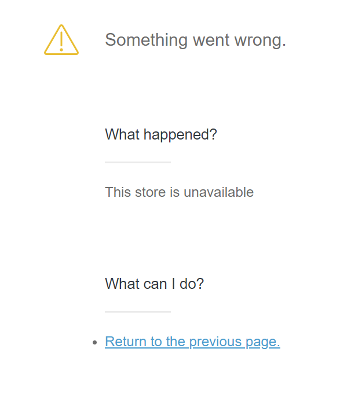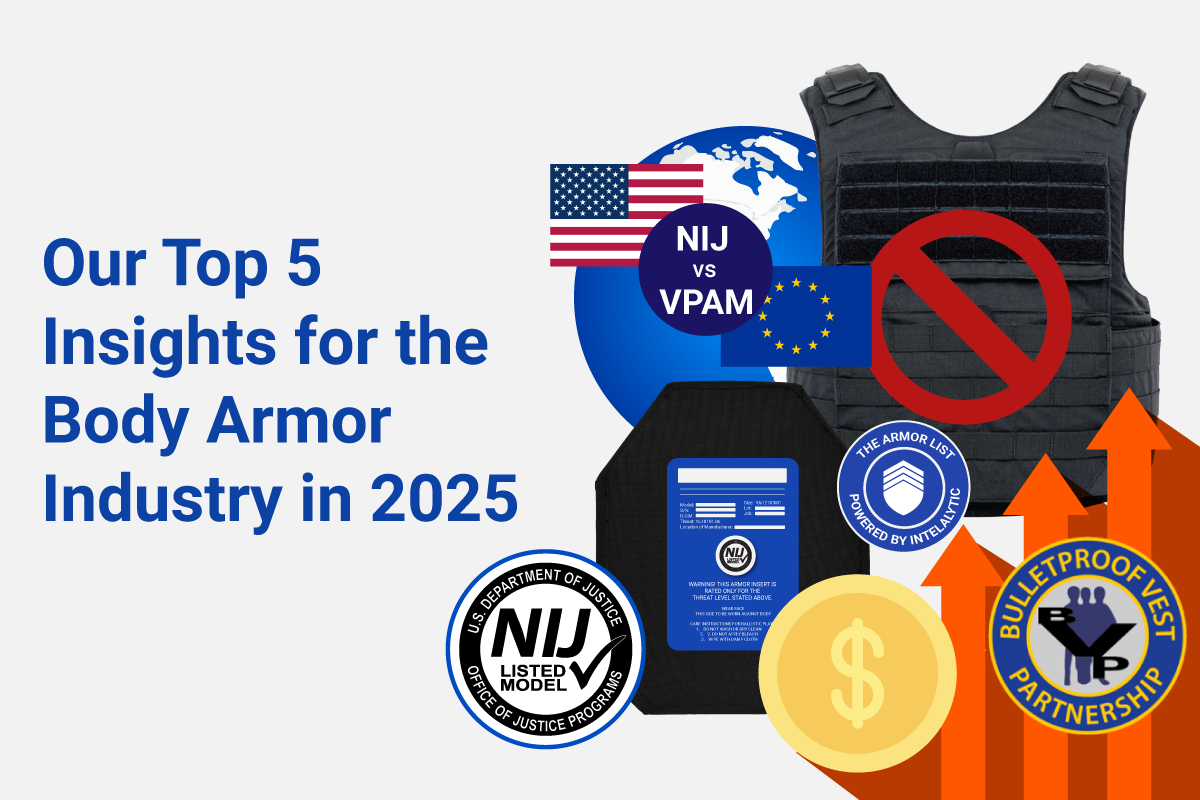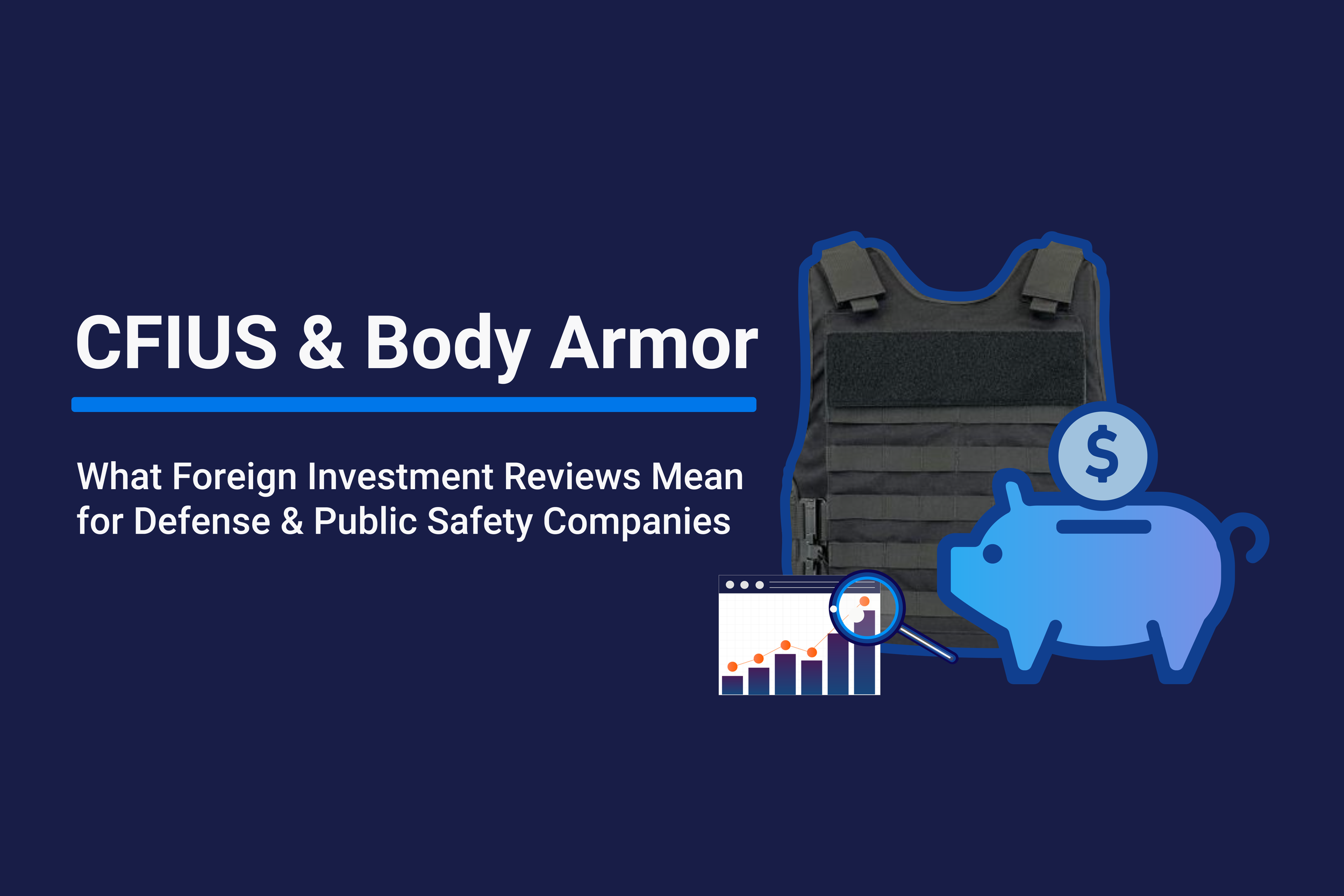Beneath the Label: Corruption and Con in Body Armor
DISCLAIMER: As someone who has collaborated closely with federal, state, and local law enforcement agencies for over two decades – from providing ballistic-resistant products to assisting in cases involving providing product identification and traceability to investigators, all while engineering and manufacturing these very products to be worn by their dedicated personnel.
This article is about more than just one company and is intended for informational and opinion purposes only. It shouldn't be interpreted as a definitive statement of fact. Entities like ShotStop are considered innocent until proven guilty in a court of law. The article is based on publicly available information at the time of writing, and readers are encouraged to do their due diligence.
Rising from a compliance and quality role to President and CEO of a premier U.S.-based ballistic-resistant product manufacturer was a journey of responsibility and pride. My commitment was to craft world-class body armor solutions, products that saved countless lives of our military, law enforcement, and frontline responders across the globe. My purview was extensive, spanning quality assurance, trade compliance, technological advancements, operational management, research and engineering, logistics, sales and marketing, and strategic business expansion.
I was at the helm of our groundbreaking partner and OEM armor programs, a trailblazer introducing private-label ballistic-resistant products to resellers in the mid-and late 2000s. Our range of product platforms was vast, encompassing rigid armor rifle inserts, soft armor panels, ballistic helmets, and ballistic-resistant shields. Under our team's focused leadership, we transformed a multi-million-dollar, debt-ridden company into a $55+ million powerhouse in the body armor market.
The influx of competitors was relentless. Companies and so-called “Innovators” often approached me, each purporting to have a revolutionary idea in armor technology or keen to rebrand our products under their banner. In the early days, my innate skepticism served me well. I was selective, ensuring our OEM network remained closely knit, strategically targeting key market segments to foster business growth and advance our “Saving Lives” mission with reputable and honest partners. It was a delicate balance, building a harmonious network where businesses respected each other’s space and didn’t create a system of misinformation and confusion in the market.
However, as with all industries, evolution brings both progress and pitfalls. The strategic moves of companies like TenCate Advanced Armor (now Integris) and Reed Composites (later acquired and today known as Hesco Armor) dramatically shifted the OEM Body Armor landscape. It became a fierce race for NIJ CPL listings, with resellers often posing as genuine manufacturers or innovators versus distribution points for these products.
Above is an image of what was previously the footer for the ShotStop website. Notice the use of logos and the call to attention to create a sense of compliance and relationship and build trust among potential customers.
Amidst the enthusiasm of respected companies like HighCom Armor, Hesco Armor, and Integris Composites, a significant trend emerged: an influx of not-so-respected or known entities, domestic and international, offering private-label products. These white-labeled offerings made it increasingly challenging to trace the origins of products, often obscuring the line between genuine manufacturers and mere distributors. This environment muddled the industry's understanding of product origins and authenticity.
And beneath these rapid changes, there were ominous signs of compromised integrity. In an industry where trust is paramount — body armor isn't just equipment; it's a pledge to safeguard lives — such shadows of deceit are gravely alarming.
The Dark Underbelly
In an industry grounded in the sacrifices of our military and law enforcement veterans, honor, integrity, and an unwavering commitment to quality and safety should be given. These courageous individuals have dedicated their lives to safeguarding our freedoms, and in return, they rightfully expect equipment that aligns with the highest standards. Regrettably, lurking beneath the surface is a nasty underbelly fueled by unabashed greed and an appalling disregard for ethics.
Over time, I've witnessed the actions of specific individuals and entities whose devious endeavors remain indelibly imprinted in my memory. The extent of their deceitful pursuits—prioritizing profits over the lives of the heroes they purport to support—is shocking and deeply saddening.
Their modus operandi involves making audacious claims, often devoid of any factual backing. With tempting promises of groundbreaking products, they willingly hoodwink their audience, well aware that their offerings fall short of requisite ballistic and quality criteria. For these unscrupulous players, it's a game of allure, sales, and profits, with end-users safety relegated to mere afterthoughts.
Their penchant for cutting corners is alarming. From neglecting imperative product lot tests to sidestepping crucial safeguards like liability insurance, they leave no stone unturned in their quest for ill-gotten gains. The notion of releasing products without ensuring their credibility is an affront to the ethos of this industry. Yet, these impostors brazenly do so, endangering countless lives.
It's distressing to fathom that within an industry symbolic of courage and selflessness, some view it as a goldmine for manipulation. Our shared duty is to shine a light on these transgressions, reinforcing that malice and deception have no place in a domain so intrinsic to our nation's defense.
Above is an image of the About Us section previously displayed on the ShotStop Website. Notice the use of authoritative logos and the trusted mark of “MADE IN USA again”.
Today, as discussions around safety and security continue to be prominent, our faith in the gear protecting our frontline heroes is paramount. Body armor, in particular, is more than just equipment; it's a lifeline. Maintaining this trust rests on the integrity of the company’s manufacturing of these vital tools. Disturbingly, recent claims against ShotStop are causing ripples of doubt, challenging the very foundation of this trust.
The USA Promise and Past Betrayals
The phrase "Made in the USA" is more than just a label to consumers—it's a promise. It symbolizes a commitment to quality, rigorous safety standards, and support for U.S. domestic industries. When companies like ShotStop prominently market their products with this tagline, they tap into consumers' profound trust in American manufacturing. Trust is rooted in the belief that the products they purchase will be of superior quality and ethically produced.
In October 2023, The U.S. Department of Homeland Security Investigations Division sent the above message to all agencies and law enforcement members nationwide regarding ShotStop and Valmar.
However, the repercussions extend beyond simple disappointment when this trust is betrayed. ShotStop's potential actions, if proven true, represent not just a breach of trust but a potential endangerment of those relying on their products. If allegations that ShotStop was importing products from countries like China and then misleadingly stamping them as "Made in the USA" are accurate, it transforms this situation from an advertising oversight to a grievous act of deception and fraud.
Regrettably, this wouldn't be the first time the industry has witnessed such deceit. It wasn't long ago when I found myself in a Washington D.C. courtroom, testifying on behalf of the U.S. Attorney's office for the Eastern District of Virginia. The case was against Dan Thomas Lounsbury, Jr., and Andres Lopez-Munoz, two executives convicted of selling falsely labeled body armor to the U.S. Government. These men, driven by greed, had secured a contract to supply our military personnel with ESAPI rifle armor inserts. Instead of fulfilling their promise, they opted for a shameful shortcut: purchasing cheap, outdated level IV plates and deceitfully altering the labels. It's beyond comprehension and makes one think, "How deep of a hole can we dig for these people?”
Such incidents are stark reminders of the lengths some entities will go to for financial gain. In 2020, Tanner Jackson of Texas, owner of Top Body Armor LLC, pleaded guilty to selling Chinese-made military helmets and body armor to federal agencies. His actions not only jeopardized lives but also undermined the credibility of genuine industry players.
Similarly, in December 2022, a cloud of suspicion engulfed Jeffrey Meining of BulletProof-It LLC. The Vancouver-based body armor company owner faced federal charges concerning falsified ballistic test reports, once again calling into question the authenticity and reliability of products that countless individuals depend upon for protection. For unexplained reasons, the Bullet-Proof-It website is still up and active today.
The above image is a scrscreenshoteen shot of the U.S. Attorney’s press release for Dan Thomas Lounsbury, Jr., and Andres Lopez-Munoz case.
These past breaches, combined with the emerging concerns around ShotStop, cast a shadow on an industry where trust is paramount. For frontline operators, body armor is not just equipment—it's a potential lifesaver. The integrity and authenticity of products in this sector must remain uncompromised. If companies fail in this responsibility, they risk their reputation and the safety and trust of those they claim to serve.
on the Dl.
Unveiling the Truth Beneath the Label
In my tenure navigating the intricate corridors of the body armor industry, I've staunchly believed that transparency is paramount. Every label isn't just a declaration of origin or quality—it's a silent vow of trust. When a company places a 'Made in the USA' sticker or any origin label on their product, they're not just making a business claim but asserting a promise of protection.
The landscape of this industry is vast and varied. Different regions bring unique technological innovations and materials to the table. It's never been my contention that one region inherently offers inferior protection or that we should stifle imports. Our global community has thrived on shared knowledge and collaborative advances. But this collaborative spirit must rest on a bedrock of honesty and integrity.
Allegations surrounding ShotStop's potential deviation from these standards aren't just about deceptive branding; it's a darker tale of compromising safety for profit. If these suspicions hold weight, we're not merely discussing false advertising. We are confronting a grievous act that endangers the very lives these products claim to protect.
Through the years, I've championed the cause of enhancing visibility regarding the countries of origin and the birthplaces of body armor. I believe every military service member, officer, firefighter, EMS, and other public safety personnel have the right to know the where and when of the origins behind the ballistic-resistant products guarding their lives. This isn't a question of national pride or territorial superiority but trust and accountability.
Once again, we clarify that this discourse isn't an indictment of any specific region or an appeal to restrict imports. It's a clarion call against misleading claims and the hidden, nefarious agendas driven by greed. Our collective mission should always prioritize lives over profits and truth over deception. Anything less is not just a business failing—it's a moral one.
The Sacred Duty of Honesty
In body armor, every brand, ShotStop included, carries an obligation far weightier than standard industries: the weight of human lives. The essence of their products is not to dazzle or entertain but to shield, to stand as the bulwark between life and its potential cessation. Thus, every claim they make, every label they stick, is not just a business assertion—it’s a pledge to a soldier, an officer, a first responder.
When companies such as ShotStop etch their labels, it should be a mirror of truth reflecting the product’s genuine origin and the sincerity of its craft. Any involvement from foreign shores in the sourcing, manufacturing, or testing must be illuminated with candor. This isn’t about nationalism or protectionism; it's about an individual's right to know the genesis of the armor they entrust their life to.
But transparency must extend beyond origins. If tests indicate any faltering in the product's robustness or if they’re found wanting against the industry's rigorous standards, the onus is on the company to act—and act swiftly. This means not merely addressing internal processes but initiating potential recalls, embracing independent evaluations, and communicating transparently with those who've trusted them.
In this arena, trust isn’t a marketing tool; it’s the very currency of existence. Transparency isn't an option for companies in this domain; it’s imperative. Anything short of this erodes brand credibility and, more crucially, jeopardizes the safety of those brave souls on the frontlines.
“For law enforcement officers, first responders, and military personnel, armor's protective value remains even if there's uncertainty surrounding its label or design. Always wear your armor. Prioritize securing validated replacements, but in the meantime, never be without protection. Even if under scrutiny, wearing potentially faulty or mislabeled armor is better than no armor.”
When clicking “Meet the Team,” a live page within days of the HSI raid, you were directed to a “404 Page Not Found” error.
The Gravity of Trust
I'd like you to imagine a story about a young police officer who graduated from the academy and is determined to serve the community.
On a typical morning, as the officer readies for duty, they secure a newly issued body armor vest - not just relying on advertisements but deeply trusting that the company behind this armor holds the highest standards of integrity.
Now, picture this officer responding to a call in a downtown alley. As shots pierce the silence, the officer, conditioned to trust their gear, doesn’t immediately sense danger. Yet, something is amiss. The trusted armor fails to protect. This officer, having placed life-altering faith in that vest, now fights for life.
Today, the shotstop.net website has turned into dust. It no longer displays claims of USA-MADE or groundbreaking technology or the option to buy its patented “Diritium” technology. All that is left are questions and an ominous and accurate tale… “Something went wrong.”
Refocus on that vest for a moment. What if its assurances of protection were merely a pretense? Suppose the company was aware of its flaws but prioritized profits over safety.
Can you grasp the depth of that trust and the enormity of such betrayal? This goes beyond the origin or label of a product. It's a binding pledge made to all who rely on that armor for protection against mortal danger. When firms betray this trust, they toy with lives. In my view, no company or individual should ever blur such lines.
Trust remains our most precious currency in the vast theater of life, where decisions echo in corridors of power and resonate on the streets. The tale of the officer isn't merely a cautionary story but a reflection of the sacred contract between those who protect and those who provide the tools of protection. Every gear, every label, every promise is a covenant, unspoken yet understood.
To the leaders of this industry: let not the allure of temporary gains blind you to the timeless value of integrity. Let's pledge anew to ensure that when someone trusts what we offer, we stand unwaveringly beside them. The responsibility is profound, and the cost of betrayal is immeasurable.
“The unfolding situation with ShotStop sheds light on the importance of transparency and integrity within the body armor industry and signals a significant concern for various agencies that have relied on their products. These entities, spanning from local law enforcement departments to federal agencies, now find themselves in a precarious position, necessitating a comprehensive review and potential replacement of body armor to ensure the safety and trust of their personnel. This action underscores the broader implications of manufacturing and marketing ethics, directly impacting those at the front lines of public safety.” - Mike Bunder / Founder and CEO - IntelAlytic
If you're aware of any wrongdoing or suspected criminal activities like those discussed in this article, it's crucial to act. Contact Homeland Security Investigations (HSI) immediately. Your vigilance could save a life.
About the Author
Mike Bundy, a seasoned entrepreneur and business leader, is the Founder & CEO of IntelAlytic Inc., a dynamic professional services firm specializing in advanced analytics and technology solutions for defense and public safety companies, with over 25 years of business management experience, including a 17-year tenure at HighCom Armor, where he was CEO until his exit in September 2022. Mike deeply understands the defense and public safety sectors. His background encompasses various business operations, including engineering, manufacturing, testing, quality, compliance, sales, marketing, finance, and global supply chain management. Recognized for his strategic thinking and leadership, Mike is dedicated to enhancing the capabilities and safety of soldiers, law enforcement officers, and first responders. Connect with Mike on LinkedIn or visit www.intelalytic.com to stay up to date on his insights and recent industry advancements.
About ShotStop Ballistics
(Description shared on LinkedIn)
U.S.-based ShotStop Ballistics claimed to be developing the lightest, thinnest, and strongest advanced armor technologies in the world. From body armor plates and armored vehicle protection to its innovative BallisticBoard® material and custom armor solutions, ShotStop Ballistics claimed to be leading the way in improving the protection of our police, military, special forces, S.W.A.T., security personnel, and more. They claimed technical expertise spanning the last 35+ years; the ShotStop team claimed they brought together engineers, PhDs, chemists, product developers, and ballistic specialists to create ballistic technology that saves lives, reduces restriction, and maximizes performance. Ultimately, they bought products from China, relabeled them as MADE IN USA, and lied to the end users whose lives depended on their products.
About HSI
(Homeland Security Investigations)
HSI is the primary investigative branch of the U.S. Department of Homeland Security, dedicated to confronting and resolving transnational crimes and threats. These crimes often involve criminal groups exploiting international trade, travel, and finance systems. Empowered with extensive legal jurisdiction, HSI delves into a plethora of transnational illegal activities—from terrorism, drug trafficking, and cybercrimes to intellectual property theft, financial fraud, and human rights violations. A unique facet of HSI's operations is its collaborative framework; the agency partners with numerous entities both in the U.S. and globally. This collaboration aims to accumulate evidence, formulate robust cases against Transnational Criminal Organizations and terrorist networks, and ensure their indictment and asset seizure. In essence, HSI's endeavors are centered around preserving the U.S.'s national, border, and economic integrities, guaranteeing its communities' and citizens' safety and prosperity.
Learn More About IntelAlytic?
Explore IntelAlytic Services
Follow us on LinkedIn for daily tips and resources









